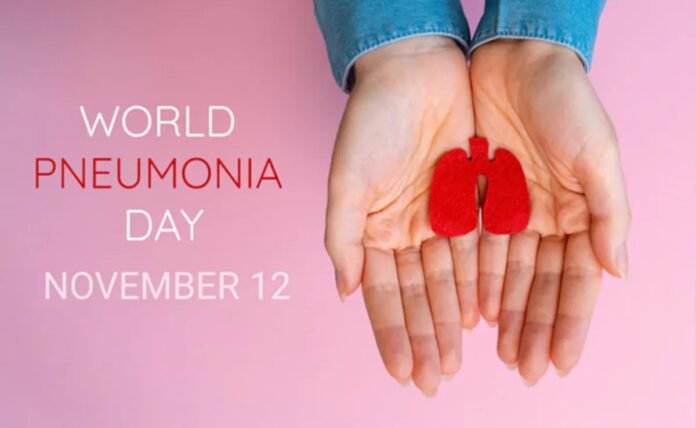
Vaidehi Bhargava
World Pneumonia Day, observed on November 12, aims to raise awareness about pneumonia and its devastating impact worldwide. Pneumonia is a leading cause of death among children under five, as well as a significant health risk for older adults, particularly in low-resource settings. This day is dedicated to improving prevention, treatment, and research efforts, especially in regions with limited access to healthcare. By raising awareness, World Pneumonia Day encourages governments, NGOs, healthcare providers, and the public to work together to reduce pneumonia-related deaths.
The Story Behind World Pneumonia Day
World Pneumonia Day was first established in 2009 by the Global Coalition against Child Pneumonia, an alliance of global health organizations that recognized the urgent need to address this often-overlooked disease. Pneumonia was responsible for nearly one in five child deaths globally at the time, claiming an estimated 1.2 million young lives every year. The coalition’s mission was to shed light on pneumonia as a preventable and treatable illness and to mobilize efforts for more efficient interventions, vaccines, and treatments.
Since its inception, World Pneumonia Day has been marked by various campaigns to highlight the disease’s impact, especially in vulnerable communities. This day also emphasizes the importance of vaccinations, proper sanitation, nutrition, and timely treatment as effective strategies to combat pneumonia. It is a reminder of the global inequalities in healthcare, as children in poorer regions face a much higher risk of dying from pneumonia than those in wealthier countries.
The Importance of Pneumonia Awareness
Pneumonia remains a global health threat, especially for children and the elderly. In addition to children under five, older adults, particularly those with compromised immune systems, are also at high risk. The disease is responsible for significant healthcare costs, productivity loss, and, most importantly, lives lost unnecessarily due to a lack of preventive measures and timely medical care. Pneumonia is a bacterial, viral, or fungal infection that inflames the air sacs in the lungs, leading to difficulty breathing, fever, cough, and sometimes fluid in the lungs.
Precautions to Prevent Pneumonia
Preventing pneumonia involves a combination of vaccinations, healthy living, and hygiene practices. Here are some critical steps:
- Vaccinations: One of the most effective ways to prevent pneumonia is through vaccination. The pneumococcal vaccine protects against Streptococcus pneumoniae, a common cause of pneumonia. Annual flu vaccines are also recommended, as influenza can lead to pneumonia, especially in vulnerable groups.
- Hand Hygiene: Practicing good hand hygiene by washing hands regularly with soap and water or using alcohol-based hand sanitizers can reduce the risk of respiratory infections.
- Avoiding Smoking: Smoking damages the lungs and weakens the body’s defenses against respiratory infections, increasing the risk of pneumonia.
- Healthy Lifestyle: Maintaining a healthy diet, staying hydrated, getting regular exercise, and ensuring adequate rest all contribute to a strong immune system, which can better fight off infections.
- Environmental Precautions: In areas with high levels of air pollution, wearing a mask and avoiding outdoor activities during high-pollution periods can help reduce the risk of respiratory infections.
- Seek Early Medical Attention: Recognizing pneumonia symptoms early, such as persistent cough, fever, chest pain, and difficulty breathing, is crucial. Immediate medical attention can prevent complications.
Summing Up
World Pneumonia Day serves as a global reminder of the preventable nature of this disease. By spreading awareness and improving access to preventive and medical resources, we can reduce the heavy toll pneumonia takes each year. Through coordinated efforts on World Pneumonia Day, we honor the lives lost to pneumonia and take steps toward a healthier, pneumonia-free world.

